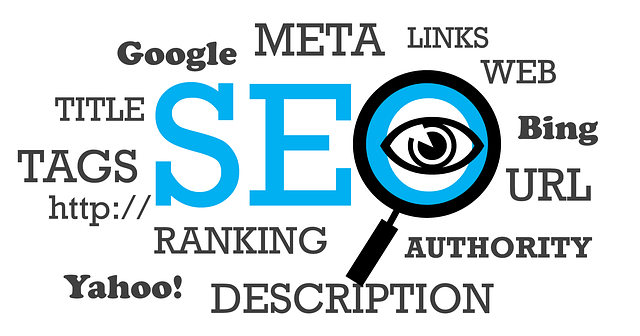A SEO audit is a thorough evaluation of a website's online performance, examining technical aspects, keyword usage, content quality, link profiles, and user experience. It identifies strengths, weaknesses, and areas for improvement, providing actionable recommendations to optimize websites for better search engine results. Regular audits are crucial for businesses aiming to strengthen their online presence by enhancing user experience, boosting organic reach, and making data-driven decisions. Interpret audit results by reviewing reports that highlight on-page optimization, technical SEO, content quality, keyword strategy, backlinks, and site speed. Prioritize actionable recommendations based on impact and address critical issues first, then implement strategic optimizations to maximize website potential.
In today’s digital landscape, understanding SEO audit services is paramount for online success. This comprehensive guide delves into the intricacies of SEO audits, exploring key components, benefits, and common issues. Learn how regular audits can enhance your website’s visibility and performance. Discover powerful tools and techniques used to interpret results effectively, enabling you to optimize your site post-audit. Maximize your digital presence with a strategic approach to SEO audit services.
Understanding SEO Audit Services: A Comprehensive Guide

An SEO audit is a thorough examination of a website’s performance and health in search engine optimization (SEO). It’s like a medical check-up for your online presence, designed to identify strengths, weaknesses, and areas for improvement. These audits go beyond surface-level analysis by delving into technical aspects, keyword usage, content quality, link profiles, and user experience, among other factors.
By conducting an SEO audit, businesses gain valuable insights into their website’s visibility on search engines like Google. It helps pinpoint issues hindering rankings, highlights missed opportunities for organic traffic growth, and provides actionable recommendations to optimize the site for better search engine results. This strategic approach ensures that digital marketing efforts are efficient, effective, and aligned with the latest industry standards.
Key Components of a Successful SEO Audit

A comprehensive SEO audit is a powerful tool for any business aiming to elevate its online presence. It involves a meticulous examination of various factors that influence search engine optimization, ensuring every element aligns with best practices and industry standards. The key components of a successful SEO audit include an in-depth analysis of technical aspects like website structure, mobile-friendliness, page speed, and schema markup. These technical foundations are crucial for search engines to understand and index web content effectively.
Additionally, the audit delves into crucial on-page elements such as keyword research, content quality, meta tags, and header usage. It also assesses off-page factors like backlink profile, social media presence, and local listings, which play a significant role in search rankings. By thoroughly evaluating these components, businesses can identify areas of improvement, fix underlying issues, and implement strategic changes to boost their website’s visibility and attract organic traffic.
Benefits of Conducting Regular SEO Audits

Regular SEO audits are an invaluable tool for any business aiming to thrive online. By thoroughly examining a website’s performance, these audits uncover hidden opportunities and potential pitfalls that might be hindering visibility and traffic growth. From identifying technical issues like broken links or slow loading times, to analyzing on-page content optimization, audits provide a comprehensive view of a site’s SEO health.
By conducting frequent audits, businesses can stay ahead of the ever-evolving search engine algorithms, ensure their content is relevant and valuable to users, and ultimately boost their organic reach. This proactive approach allows for data-driven decisions, enabling website owners to make informed changes that enhance both user experience and search rankings.
Common SEO Issues Identified Through Audits

SEO audits are a comprehensive way to assess and identify areas of improvement for your website’s search engine optimization (SEO). Through this process, several common issues can be uncovered that hinder a site’s visibility and ranking on search engines. One of the primary goals of an SEO audit is to pinpoint technical problems, such as crawl errors, broken links, or slow page loading times, which directly impact a website’s ability to be indexed and ranked effectively.
Additionally, these audits reveal content-related issues, including duplicate content, keyword optimization gaps, and low-quality or inadequate meta tags. By identifying and rectifying these problems, businesses can enhance their online presence, attract more organic traffic, and ultimately improve their search engine rankings. This process ensures that websites are optimized for both users and search engines, leading to better overall performance and a stronger digital marketing strategy.
Tools and Techniques Used in SEO Audit Process

In the dynamic realm of search engine optimization (SEO), a comprehensive audit is akin to unearthing a treasure map, guiding businesses toward online visibility and success. The SEO audit process involves a meticulous examination of various factors that influence a website’s ranking on search engines. Professionals employ an array of tools and techniques to navigate this intricate landscape. These include keyword research tools, which help identify relevant keywords and understand search trends, and site analytics software for tracking website performance, user behavior, and traffic sources.
Additionally, technical SEO audit tools are utilized to scrutinize the website’s architecture, ensuring it aligns with best practices. This involves checking for crawlability issues, site speed optimization, mobile-friendliness, and proper implementation of meta tags. By combining quantitative data from these tools with qualitative insights, SEO experts can pinpoint areas of improvement, whether it’s optimizing content for better keyword relevance or structuring the website for enhanced user experience.
How to Interpret SEO Audit Results Effectively

Interpreting SEO audit results is a crucial step in understanding your website’s performance and identifying areas for improvement. Start by familiarizing yourself with the audit report, which should provide an in-depth analysis of various SEO aspects like on-page optimization, technical SEO, content quality, keyword strategy, backlinks, and site speed. Each category will offer insights into strengths and weaknesses.
Focus on actionable recommendations provided by the SEO audit tool or expert. Prioritize issues based on their impact on search rankings and user experience. For instance, critical errors like broken links or mobile usability problems should be addressed first. Analyze suggested improvements in the context of your business goals and target audience to ensure changes are strategic and effective.
Optimizing Your Website Post-SEO Audit

After conducting a thorough SEO audit, the next step is to optimize your website based on the insights and recommendations gained. This process involves several key strategies. Firstly, address any technical issues identified during the audit that may be hindering search engine visibility, such as site speed, mobile-friendliness, and schema markup implementation. These optimizations ensure your website performs well technically and provides a seamless user experience across all devices.
Secondly, leverage the audit’s findings to enhance your content strategy. This includes optimizing on-page elements like meta titles, headers, and content itself by incorporating relevant keywords naturally. Additionally, create an efficient internal linking structure to distribute link equity throughout your site and improve overall authority. These content-focused optimizations will not only attract search engines but also engage and retain user interest.
